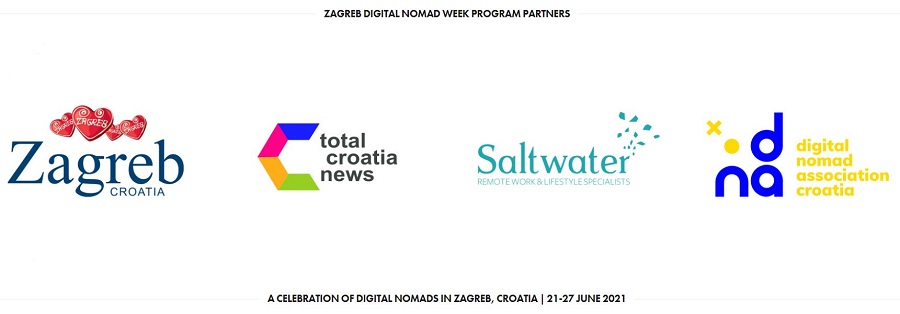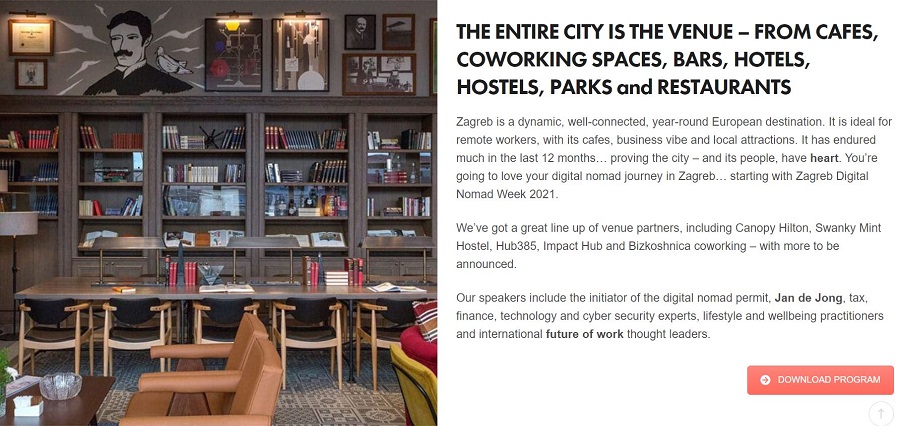Budapest, Innsbruck, Grenoble Mayors Support Tomislav Tomašević For Zagreb Mayor
ZAGREB, 12 May, 2021 - The mayors of Budapest, Innsbruck and Grenoble have sent video messages of support to Tomislav Tomašević, the green-left coalition's candidate for the mayor of Zagreb, the We Can! political platform said on Wednesday.
Budapest Mayor Gergely Karácsony says in his message that Zagreb and Budapest are not only geographically close but also friendly cities with many links, underlining how important it is for the progressive green agenda to strengthen its position in the region and to act together to achieve a viable, democratic future.
Karácsony says the policies Tomašević advocates, such as green public transport and recycling, are the key issues on which he is working as mayor too, and calls on the people of Zagreb to vote for Tomašević
Innsbruck Mayor Georg Willi says the challenge today is to find the right response to climate change and that green changes will primarily occur in European cities. That's why Zagreb needs strong advocates of those changes under Tomašević's leadership as mayor, Willi adds.
Grenoble Mayor Éric Piolle says he is looking forward to cooperating with Tomašević in the network of ecological cities flourishing across Europe, from Innsbruck and Amsterdam to Bonn and Hannover as well as many cities in France.
Piolle says Tomašević has been fighting for the environment for years, working on transparent policies and including citizens in shaping their city.
By electing Tomašević as mayor, Zagreb has a chance to join the increasing number of European cities governed by progressive green-left political forces which are making important steps forward in improving quality of life by taking account of climate change and other challenges of the 21st century, Piolle says in his video message.
For more about politics in Croatia, follow TCN's dedicated page.
8 LOT Lines to Croatia Planned for Summer to Five Croatian Airports!
May 12, 2021 - The latest flight news to Croatia as 8 LOT lines to Croatia will operate this summer to five Croatian airports!
Croatian Aviation reports that Polish national airline, LOT Polish Airlines, plans to operate regular flights to five Croatian airports in the summer season. We bring you the planned flight schedule, currently confirmed by the airline.
After a short break without operations in January and February, the Polish LOT resumed traffic to Zagreb with the first day of the summer flight schedule this year. The line is currently in operation three times a week, on Tuesdays, Thursdays, and Saturdays, and the company will gradually increase the number of operations. It will operate 6 times a week during the peak summer season between Zagreb and Warsaw. Before the pandemic, LOT operated twice a day to Zagreb.
Lines to Dubrovnik Airport
At the end of April, the line between Warsaw and Dubrovnik started operating twice a week, on Wednesdays and Saturdays. On this line, there will be an increase in the number of operations. The company plans to run to Dubrovnik four times a week.
In addition to the line from Warsaw, LOT will resume traffic on the line from Poznan, which will be in operation from June 3, once a week, every Thursday. From June 19, the third line to Dubrovnik will be introduced, from Krakow, also once a week, on Saturdays.
Lines to Zadar Airport
This summer, LOT will also have two lines to Zadar. The line from Warsaw will operate from June 19, once a week, on Saturdays, and from the same date, the line from Rzeszów will also be in operation once a week.
The company has already resumed traffic on the line between Warsaw and Split. The line is in operation twice a week, on Wednesdays and Sundays, and LOT plans to keep two flights a week on this line throughout the summer season.
Return to Rijeka Airport as well
Good news for Rijeka airport, too! Although the company had previously considered canceling the route to Rijeka and withdrew it from sale, flights are now available for booking again, and LOT plans to resume traffic on the line between Warsaw and Rijeka from June 19 with one flight a week, on Saturdays.
On the routes to Croatia, LOT plans to use Embraer aircraft (170, 175, 190, 195), but already on the first flights to Dubrovnik, the company used a larger capacity aircraft - B737-800.
This flight schedule is a planned schedule of the airline which, in case of higher demand, will react by introducing additional flights, but also cancel certain ones in case the booking is not satisfactory, which became the practice of all airlines after the global pandemic.
Follow the latest on flights to Croatia HERE and the latest travel updates and COVID-19 news from Croatia HERE.
For more on travel in Croatia, follow TCN's dedicated page.
Two New Ryanair Flights to Zagreb Announced from September!
May 11, 2021 - The latest flight news to Croatia as two new Ryanair flights to Zagreb have been announced from September!
Croatian Aviation reports that Ryanair released tickets for two more new routes to Zagreb Airport today!
As previously announced, the Irish low-cost airline will open a base at Zagreb Airport from September this year.
In addition to the already announced, 12 new lines, Ryanair will operate directly to two more destinations from Zagreb from September.
From September 4, the Zagreb - Malmo - Zagreb line will be introduced, which will be in traffic twice a week, on Tuesdays and Saturdays.
From the same date, the Zagreb - Dusseldorf Weeze - Zagreb line will be introduced, which will also operate twice a week, on Tuesdays and Saturdays.
Tickets for these two new routes are already on sale on the airline's official website, and these lines will also operate in the winter flight schedule. According to the latest announcements, Ryanair will have as many as 14 international routes from Zagreb Airport from the beginning of September, leaving the possibility of introducing additional lines until the start of operations and the opening of the base in September.
Already this autumn, Ryanair will perform weekly flights from Zagreb Airport to the following destinations:
Brussels Charleroi, from June 2, 3 times a week,
Dortmund, from September 3, 2 times a week,
Frankfurt-Hahn, from September 3, 3 times a week,
Gothenburg, from September 3, 3 times a week,
Karlsruhe, from September 2, 2 times a week,
London, from September 1, daily,
Memmingen, from September 3, 2 times a week,
Milan, from July 1, 4 times a week,
Paris, from September 2, 2 times a week,
Podgorica, from September 4, 2 times a week,
Rome, from September 3, 3 times a week,
Torp Sandefjord, from September 1, 2 times a week.
The company has more than 430 B737-800 aircraft in the fleet, with a capacity of 189 seats. The average age of Ryanair aircraft is only 8 years.
Ryanair has been operating in Croatia since 2006. By June 2019, the company had transported 4 million passengers to and from Croatia.
Follow the latest on flights to Croatia HERE and the latest travel updates and COVID-19 news from Croatia HERE.
For more on travel in Croatia, follow TCN's dedicated page.
Zagreb Digital Nomad Week 2021 Announced by Saltwater Nomads/Zagreb Tourist Board
May 11, 2021 - The digital nomad buzz in Croatia is about to get even louder, with the announcement of the Zagreb Digital Nomad Week 2021 & the Digital Nomad Ambassador Project.
The future of work is evolving, and Croatia is in a great position to take advantage of the new reality with its unbeatable combination of safety, authentic experiences, and lifestyle.
The global pandemic has highlighted even more the lifestyle and opportunities for digital nomads around the world, and Croatia has been one of the quickest countries to seize the opportunity. Thanks to the efforts of Dutch entrepreneur, Jan de Jong, and his team, the Croatian digital nomad permit became a reality on January 1, 2021. A number of permits from as far away as Guatemala have so far been approved.
And the digital nomad eco-system is developing nicely in Croatia, an eco-system which will be strengthened by a new project announced today and funded by the Zagreb Tourist Board, in cooperation with Saltwater Nomads, the Digital Nomad Association, and Total Croatia News. Welcome to the Zagreb Digital Nomad Week 2021 & the Digital Nomad Ambassador Project.
The first part of this innovative project, Zagreb Digital Nomad Week 2021, will take place from June 21-27, at various partner locations around the Croatian capital.
Seven themes for 7 days, with one day focused on the following: cyber security, online presence, remote careers, tax & finance, future of work, wellbeing and exploring Zagreb.
The week will showcase the whole city, with events being held in hotels, hotels, coworking spaces, bars, cafes, and parks, with each evening featuring a different theme.
Zagreb Digital Nomad Week 2021 is aimed at current and even “wannabe” digital nomads and remote workers. Croatia’s new legislation has really put it on the map for the global remote workforce - the organisers expect to see a diverse group of professionals coming to Croatia in years to come, with Zagreb as a top choice.
You can see an overview of the program here, with a detailed look at the daily activity here.
Zagreb Digital Nomad Week 2021 will kick off at Canopy by Hilton on June 21, before moving to other partner locations, including Swanky Mint Hostel, HUB385, Bizkoshnica and Impact Hub.
A second component of the initiative is the Digital Nomad Ambassador Project, which will see one lucky nomad in residence as a guest of Zagreb for a month, starting on July 1 until December 31. This will allow nomads to experience the magic and diversity of this vibrant city, with its changing seasonal experiences over a six-month period.
The Ambassador project is expected to be another way Zagreb demonstrates its warmth and the winners will show the diverse, year-round offer and lifestyle you can enjoy here - whether you come alone, as a couple or even family. There’s a lot happening and with a regular work schedule, one month is just a taste of life in Zagreb.
Applications for the Ambassador project are now open on the Saltwater Nomads website.
Zagreb Tourist Board has worked hard to diversify its tourism in the wake of the double blow of the pandemic and devastating earthquake. Its partnership with the county tourist board in the Around Zagreb project has been a big success, opening up new tourism possibilities to visitors to the city. This digital nomad strategy is an extension of that strategy.
For more about digital nomad tourism in Zagreb, visit the Zagreb Tourist Board dedicated page.
For the latest on digital nomads in Croatia, follow the dedicated TCN section.
Aegean Airlines Cancels Athens-Zagreb Flights this Summer
May 11, 2021 - The latest flight news to Croatia as Aegean Airlines' Athens-Zagreb flights will not operate this summer.
Croatian Aviation reports that Greek national airline, Aegean Airlines, has stopped selling all tickets on the direct route between Athens and Zagreb for this summer season.
Greece's national carrier withdrew ticket sales this weekend on a regular route between Athens and Zagreb Airport. Although in mid-January this year, the company announced the reintroduction of regular lines from Athens to Zagreb, Split, and Dubrovnik, in the meantime, there have been operational changes.
As announced earlier, the line to Split was canceled, while the first flights to Zagreb and Dubrovnik were announced for May. The company has now further reduced its network of destinations for the summer season, with no connection to Zagreb available.
Aegean Airlines launched a regular flight between Athens and Zagreb in May 2018 and operated on it three times a week with DashQ400 aircraft. The line also operated in the winter flight schedule but reduced, with a short break in January and February 2019.
At the end of 2019, the company announced that it would introduce larger aircraft on the route to Zagreb in the 2020 summer season (A319 and A320 aircraft), but this did not happen due to the global pandemic, and the route was suspended. Although according to the company's announcements, Aegean was expected to operate to Zagreb in the summer of this year, according to the latest information, this will not happen, and the chances that the line will be renewed in the winter flight schedule this year are almost non-existent.
The only destination of the Greek national airline this summer in Croatia is Dubrovnik, according to which Aegean Airlines planes should operate from June 19, initially twice a week, on Tuesdays and Saturdays.
Zagreb remains connected to Athens by the regular line of Croatia Airlines (with a stop in Dubrovnik), which should start operating on Thursday, July 1. Flights on this line are announced three times a week; on Tuesdays, Thursdays, and Sundays, and tickets are on sale on the official website of Croatia Airlines.
Follow the latest on flights to Croatia HERE and the latest travel updates and COVID-19 news from Croatia HERE.
For more on travel in Croatia, follow TCN's dedicated page.
Best Zagreb Mayor By Historians: Historians Shouldn't Rate, But Većeslav Holjevac Takes Lead
May 11, 2021 - Ahead of the local elections, following the death of Milan Bandić and troubling issues Zagreb is facing at the moment, TCN reporter Ivor Kruljac wondered who is the best Zagreb mayor by historians.
With the local elections happening in Croatia this Sunday, just as every year, 2021 is no exception, with all eyes directed on Zagreb. This is no surprise, given that, for better or worse, Zagreb is the capital city, the center of politics, culture, science, education, and the spot where Croatians from other smaller towns, villages, etc. come in search of a job and new opportunities. You may not necessarily need to leave the country to leave your dreams, and despite other regions of Croatia slowly but surely developing, Zagreb is still considered by many as the necessary place to go to achieve something.
And this year, the eyes are even watching in even bigger suspense; Milan Bandić, who was the first man of the city for 20 years, passed away in February. The ever-controversial political figure (now replaced by his deputy Jelena Pavičić Vukićević, who also runs in the elections) suspected of corruption, being arrested during his mandate and on several trials, left lots of unresolved issues which the new mayor will have to address in the city's administration. Additionally, the current corona crisis caused some new challenges, and last year's earthquakes and city reconstructions are still a hot political topic among citizens.
Zagreb: History of overcoming the crisis
Challenging circumstances in 2021, no doubt, but certainly nothing Zagreb isn't used to. While settlements on the city's territory date earlier, the first mentions of Zagreb are linked with establishing of Capitol Diocese in 1094. Since then, diseases, earthquakes, floods various wars (WW1 and WW11 included, as well as the 90s war Croatians commonly refer to as the Homeland War), disrupt the peaceful life of Zagreb citizens. The city still stands. But of course, these different troubling contexts were handled not just by citizen's persistence but also by the city's authorities and leaders.
Throughout the turbulent history, Zagreb had, concluding with current deputy Jelena Pavičić Vukičević, a total of 53 mayors. The first one was as, Povijest.hr writes, Janko Kamauf, whose term lasted six years, from May 15, 1851, to 1857. He was a former city judge of Gradec, a title whose authorities basically made him the mayor of Gradec. Following the unification of rival Gradec and Kaptol into one city in 1850, he was elected to be the first leader of a city whose population at the time counted 16,036 people.
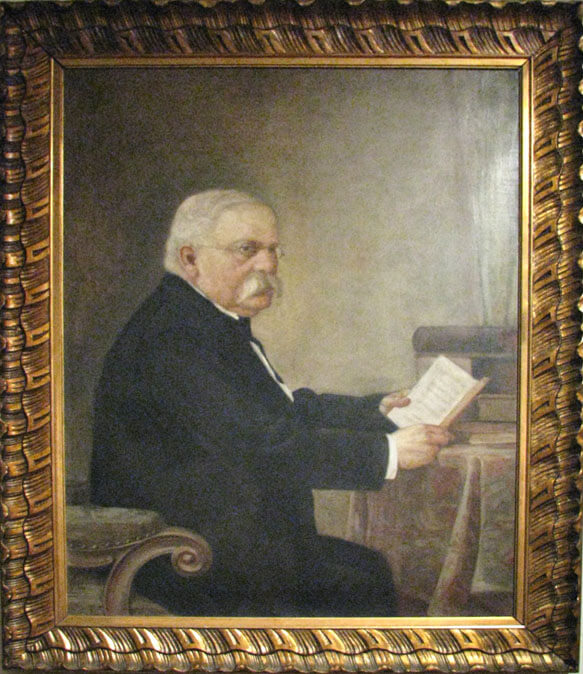
Janko Kamauf painted by Bela Čikoš Sesija, showcased in Zagreb City Museum © Unkown author, Wikipedia
He was the first, but was he the best?
I asked several historians if could they rate and pronounce in their opinion, with regards to the specific contexts, who was the best Zagreb mayor, from Kamauf to Vukičević Pavičić.
Two votes for Većeslav Holjevac!
„I'm not into grading, that's not a historian's task. Our task is to explain and put on the table facts and context of events“, said Ivo Goldstein when I asked him about the best mayor of Zagreb.
Ivo Goldstein may be best known to the Croatian public as a harsh critic of the far-right and the fascist regime of the Independent State of Croatia. As a Historian, he took an interest in various topics related to Croatian history.
At the start of his career, his focus was on Byzantine Empire and Croatian Middle Age History as well as the history of Jews in Croatia. In mid 90's he moved to the various aspects of Croatian history in the 20th century.
He was a professor of various history courses „General History of the Middle Age“ (1984-2003), history of methodology (1991-1996), and many more and today a full-time professor at the Department of History on The Faculty of Humanities and Social Sciences, the University of Zagreb (where he mastered and later completed his Ph.D. thesis at the Faculty of Humanities and Social Sciences, University of Belgrade).
Goldstein's scientific papers received positive acclaim in various countries worldwide, he hosted various projects scientific projects and associations and is very active in Croatian public space when it comes to historical issues that shape the ideas and decisions of current policies in Croatia.
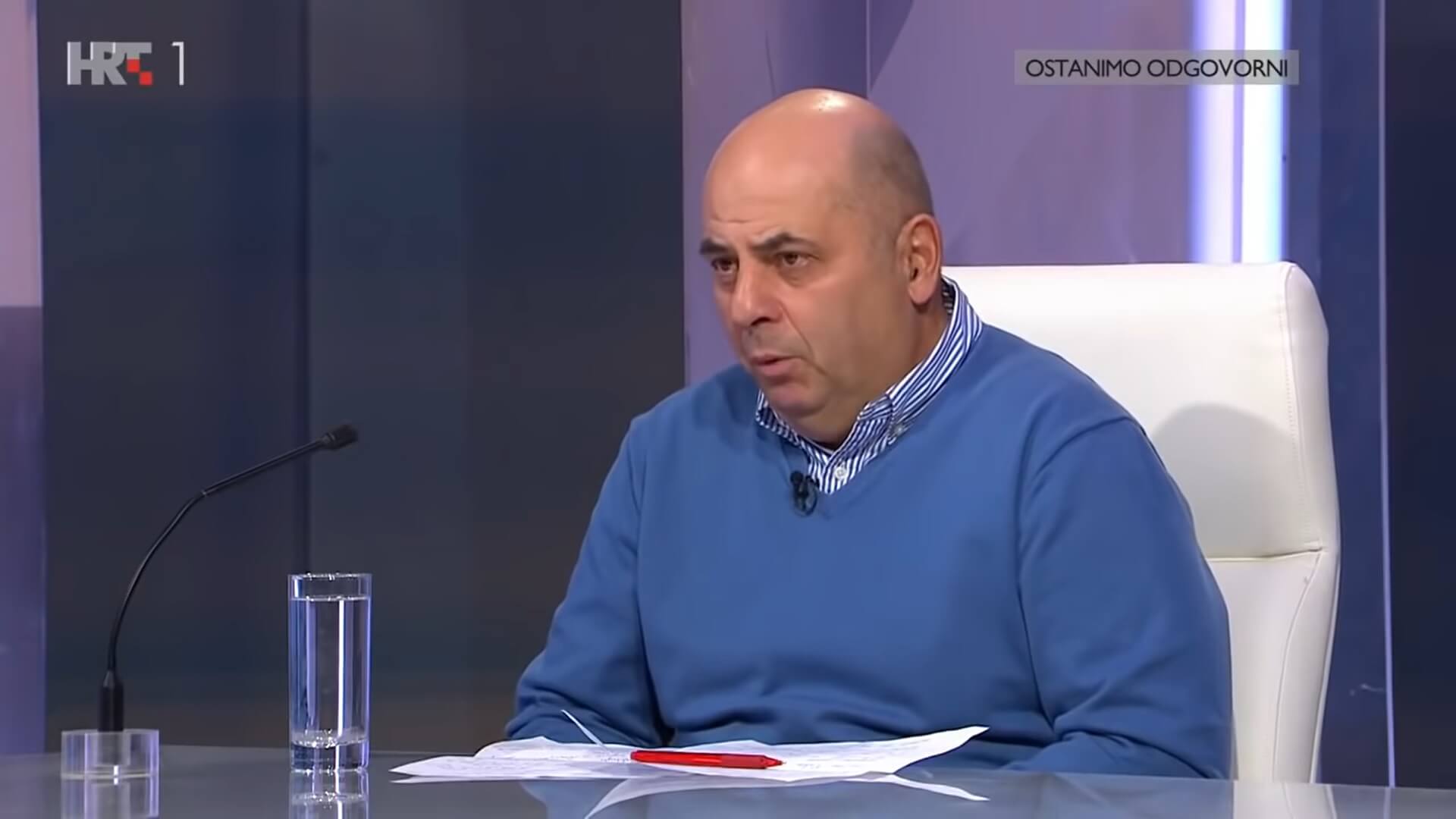 Ivo Goldstein / screenshot HRT Nedjeljom u 2
Ivo Goldstein / screenshot HRT Nedjeljom u 2
Upon explaining the role of historians, professor Goldstein nevertheless didn't mind giving his personal opinion.
„For me, there is no doubt that the best mayor of Zagreb is Većeslav Holjevac“, said Goldstein.
Većeslav Holjevac was the Mayor of Zagreb from 1952-1963 and his eleven-year mandate saw Zagreb develop and spread as the city.
„At that time, Zagreb was the capital city of Socialist Republic of Croatia, which was part of Yugoslavia. Holjevac saw a boost by liberal politics, it was the time of growth and optimism and Holjevac knew how to use it. He was a man of action and used Yugoslavia's opening to the world to Zagreb's benefit“, explained Goldstein.
He added that Holjevac didn't want to be perceived as some sort of transmission of higher state authorities. He didn't hide behind forums and was an independent, free-minded politician, which made him known and beloved among citizens.
„But it made him unloved among the higher power of authority which ended his mandate, although we historically don't know the real reason why Holjevac stopped being mayor“, Goldstein pointed out the mystery which is yet to be cleared up by historians.
The key term of Holjevac's mandate is the General Urban Plan which saw the development of the Most Slobode (Bridge of Freedom), expansion of Zagreb city to south across Sava river, and what today is Novi Zagreb (New Zagreb), as well as building up Zagreb Airport.
„Holjevac knew how to surround himself with good associates who were both dreamers and experts. Holjevac also engaged himself in the projects and his associates felt safe and that he got their back“, explained Goldstein.
The best example of that boldness and visionary approach can be seen in the Zagreb fair which was at that time located at the place of today's Student Centre in Savska.
„The fair needed expansion but was surrounded by railroad tracks everywhere, and the question was how to expand it. There were several options, but Holjevac decided to take it across the Sava river, and it happened. It was quickly constructed, and the first fair on newly build location was the Autumn fair in 1956. and it was the biggest event of its kind in the world back then“, said Goldstein, gladly adding he even had a chance to meet Holjevac as a 12-year-old since the mayor knew his father, an established Croatian intellectual, and politician, Slavko Goldstein.
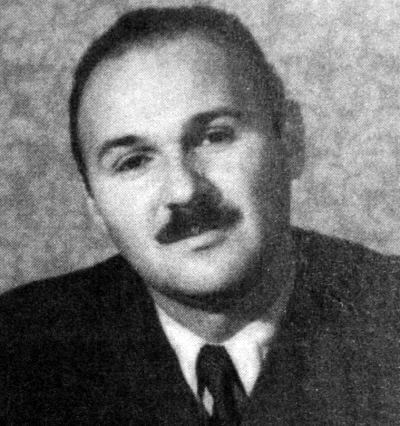
Većeslav Holjevac © Udruga Kameleon / Wikipedia
Hrvoje Klasić was professionally most occupied by Većeslav Holjevac, so he also shares Goldstein's opinion about Većeslav Holjevac.
„In a sentence: Zagreb has never been more developed as it was after Holjevac“, summarized Klasić.
Hrvoje Klasić graduated in 1997 from the Department of History, Faculty of Humanities and Social Sciences at the University of Zagreb. At the same University, he defended his dissertation entitled “1968 in Yugoslavia. Socio-economic changes in an international context”. Since 2003 he has been employed as a professor at the same Faculty and University.
Today, he holds a number of courses related to the world and national history of the 20th century.
Hrvoje Klasić also won the Annual Award of the Association of University Teachers and other Scholars in Zagreb in 2006. That same year he won the Annual Award of Sisak City for the Book „Croatian Spring in Sisak”. He is the author of 3 more books and the author of two documentary series „Croatian Spring“, and “The Independent State of Croatia” produced by Croatian Television. In 2017 The Serb National Council in Croatia gave him an award for the improvement of Croatian-Serbian relations. In 2019 he won the Award for the promotion of peacebuilding, nonviolence, and human rights.
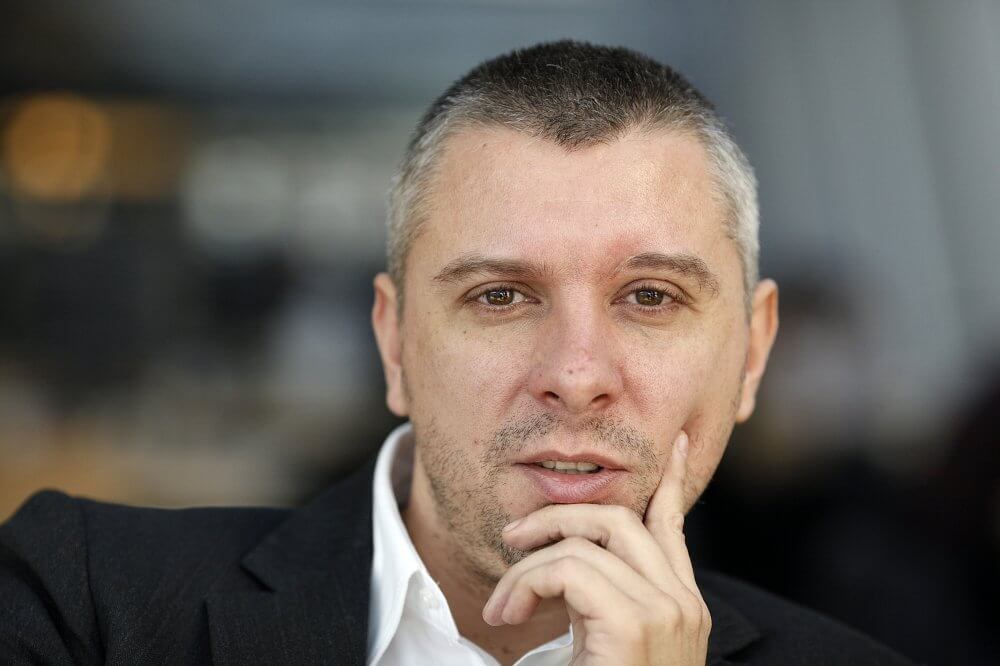
Hrvoje klasić © Hrvoje Klasić
„Most people don't know that Holjevac technically wasn't a mayor, rather he was a president of the City's National Council“, explained Klasić the precision of the functions in the previous Yugoslavian state. He added that while his term lasted from 1952-1963, that is only partially true because he was first appointed to lead Zagreb in 1945.
„In 1945, he was named the city commander who was a military function but he was also in charge of food, traffic, working with several refugees after World War 2 until he gave the control over to civilian bodies“, describes Klasić.
Holjevac then moved on to be the minister of work and traffic in the Social Federal Republic of Croatia. However, at that time, Yugoslavia was going under a change in its political institutions by the self-governing policy which went under parole „factories to workers, cities to citizens“, and as a result, Holjevac 's ministry was shut down. His return to the top position in Zagreb happened without him even knowing.
„As part of self-governing, the Communist Party in Zagreb searched for someone who isn't just going to execute orders from above but instead is an individual that has quality, creativity and will make its own decisions. Holjevac was elected during a meeting he wasn't even present on, and some members of the party were worried is it smart to give Zagreb to a person who is from Karlovac“, said Klasić.
As Goldstein already mentioned, his term lasted over a decade, and Klasić adds that was a very unusual duration at the time.
While Goldstein already mentioned the traffic connections of Zagreb, Klasić said it is very hard to count everything Holjevac built, but he put focus on the industry. Industrial plants of organic-chemical industry, Zagreb heating plant, industrial plants of Pliva pharmaceuticals, Chromos paint company, Kemika, Zvijezda company, Katran, Badel company for alcohol spirits, an ice rink on Šalata, winter pool and gymnastics gyms on Mladost, Yugoton record company, Jadran Film, TV tower on Sljeme, Zagreb drama theatre, an emergency room in Draškovićeva, various elementary and high-schools, and began construction of Vatroslav Lisinski concert hall and more.
„Before Holjevac, there were 40,000 workers in Zagreb. After Holjevac, there was 110,000“, said Klasnić to illustrate the results which made the city the strongest industrial center in Yugoslavia. Apart from industry, Holjevac put a lot of focus on culture and education, as evident by building Workers University Moša Pijade for adult education (today's Public Open University Zagreb) and culture.
Holjevac's „Jump over Sava“ was done on the one hand to prevent interventions in old Zagreb, and on the other, the organizational construction of Novi (New) Zagreb saw the workers live close to the newly built factories.
As Goldstein already referred to Zagreb Fair as perhaps the most significant project of Holjevac's mandate, Klasić added that the unique geopolitical position of Yugoslavia as the bridge between east and west, thanks to the non-aligned movement, made the fair a key place worldwide.
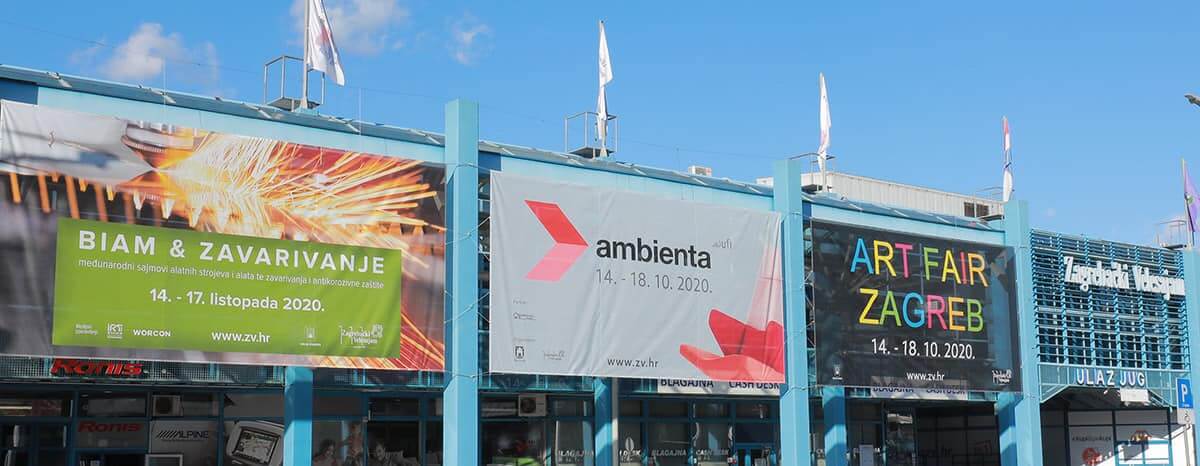
Southern entrance of Zagreb Fair in 2020 © Zagrebački Velesajam
„The fair was not just important for holding exhibitions, but for making deals and signing contracts as well. Given Belgrade was the capital of Yugoslavia, there were pressures to have such a fair there, and there were even boycotts from Belgrade to Zagreba Fair events. However, Holejvac being both persistent and enjoying support by the Yugoslavian president Marshall Josip Broz Tito, managed to keep this significant place in Zagreb“, explained Klasić.
When asked about resentment of other politicians, and the unclear mystery of concluding his mandate, Klasić said he had a chance to look at archives about Holjevac while working on an exhibition about him, and he feels that the situation is much simpler.
„Holjevac basically left due to the same politics that got him to be the mayor in the first place. The Self-Governing model started descending to the lower levels of the system and started searching for creative people. In 1963, a new constitution was brought that further developed the political system to give City Assembly more power accenting the community governing Zagreb. Holjevac's president of City's National Council title has shut down, and the president of Assembly became the first man of Zagreb.
Rotation of politicians as well as limited mandate time was arranged too“, explained Klasić.
He added, however, that it is problematic that an experienced, capable, brave, and brilliant man like Holjevac wasn't put to better use after he stopped being mayor and played bigger roles in Yugoslavian political life.
There isn't the best, only good and bad mayors
Unfortunately, other historians, I contacted (and of course, I couldn't contact every single one, who knows who else might be interested to participate), didn't respond to my inquiry. While Ivo Goldstein explained rating mayors isn't historian's job, Stevo Đurašković, professor at the Faculty of Political Sciences in Zagreb, further elaborated the problem of my question.
„I'm not a fan of such an approach to the topic like it's a miss pageant. In Zagreb's history (as in good portions of cities around the world). There were several great mayors, again, each in its own historical context“, explained Đurašković.
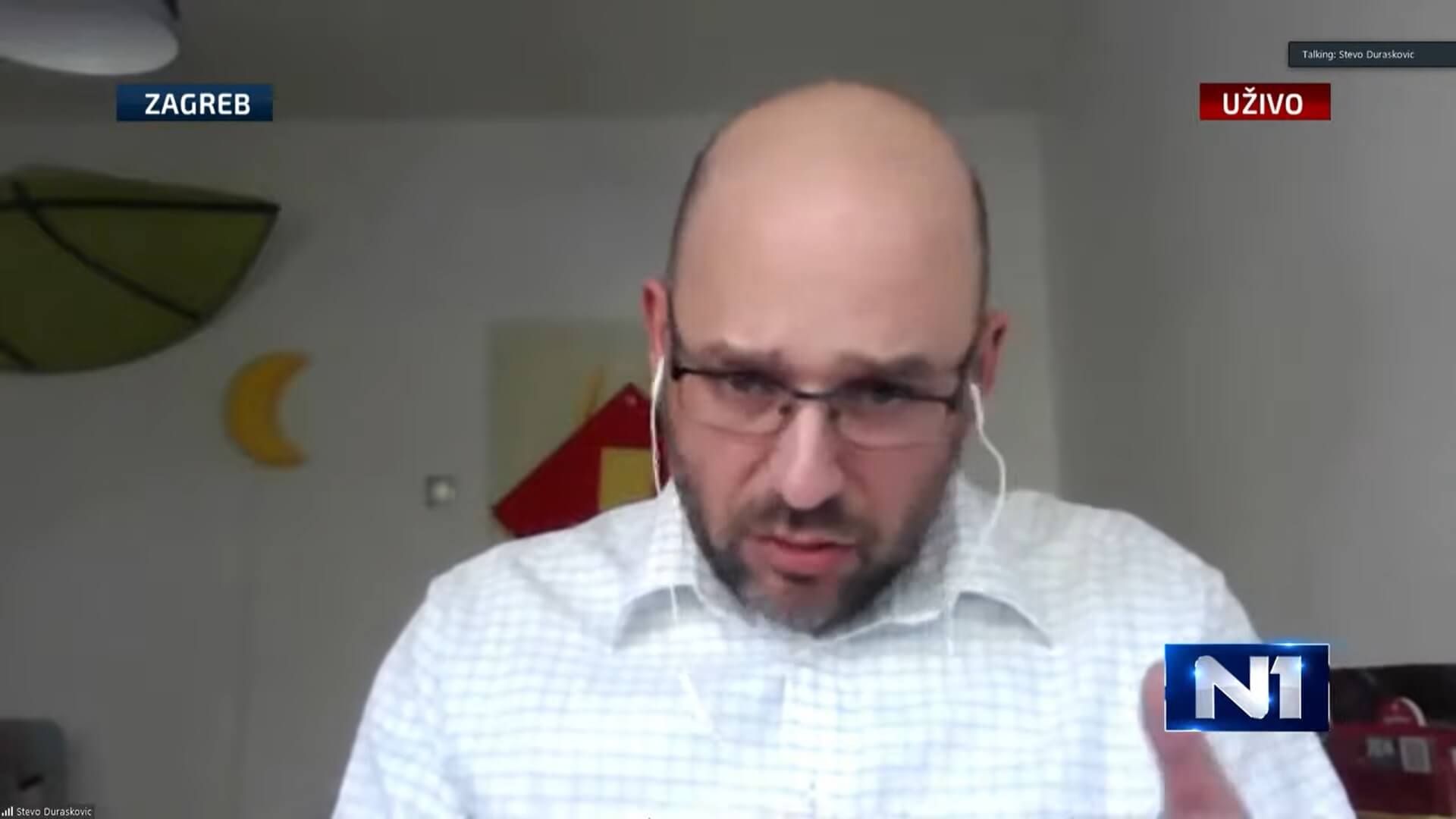
Stevo Đurašković, screenshot / N1
Stevo Đurašković is an Assistant professor at the Faculty of Political Sciences, University of Zagreb, where he teaches courses in politics of history and Croatian history. He received his Ph.D. in Political Science from the Faculty of Social Sciences at the University of Ljubljana and his MA in Central European History from the History Department at the Central European University, Budapest. His research interests include the politics of history, intellectual history, and national identity-building processes in East-Central and Southeastern Europe. Recently he published the book The Politics of History in Croatia and Slovakia in the 1990s (2016). Participated in several international projects, including “Identity Reader: Regional Identity Discourses in Central and Southeast Europe, 1775-1945” (CAS, Sofia). He is a member of the editorial board of the Cultures of History Forum (Imre Kertész Kolleg, University of Jena). In 2009/2010. He was a Ph.D. research fellow at the Faculty of Economic and Social Sciences, Comenius University, Bratislava (CEEPUS grant, Visegrad Fund grant).
In other words, an expert in his respective field with a valid and knowledgeable opinion.
„Milan Amruš and Većeslav Holjevac were great mayors. How to determine if Amruš's development of pre-war Zagreb is greater than Holjevac's post-war development of Zagreb?“ concluded Đurašković his decline to comment who would be the best mayor of Zagreb.
Speaking of Amruš, he was Zagreb mayor in two separate mandates, the first one lasting from 1890 to 1892 and the second from 1904 to 1910. Lice Grada reports that some of the accomplishments in Maruš terms include electrification of the city, and building up Munjara Power Plant (in 1906 and 1907). Under Amruš's mandate, the website continues, horse trams were replaced by electric trams in 1909 and new tram lines and the expansion of the previous one from Ilica to Topnička Barracks were constructed. In addition, 1890 saw lower and upper Zagreb connected by a funicular.
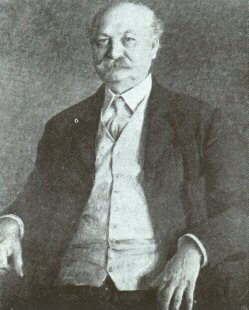
Milan Amruš © Unknown author Wikipedia
Đurašković also added in his decline that Pero Pirker is often „a forgotten mayor“, and Klasić mentioned him as the Holjevac's successor. Mentions of Pirker are also noted on Nacionalne Manjine (National Minorities) site that declared Pirker as a noted Zagreb mayor.
"There is no doubt that Pirker is one of the most capable, most successful, and in its time an extremely popular mayor. But it is stunning that for political reason, considering he was one of the established champions of Croatian Spring in 1972, his work was completely silenced not only until the 1990s but also later“, wrote Goran Beus Richembergh for Nacionalne Manjine.
It's worth noting that the Croatian Spring was a reawakening of national identity which paved the way for the country's independence and the dissolution of Yugoslavia, on which TCN reported on its 50th anniversary earlier this year.
In Pirker's time, the Great flood that sank Zagreb in 1964 was truly the historical challenge of his mandate.
„It was a natural disaster of great extent, and the entire previous state (Yugoslavia) was involved in sanitation and help was arriving from all over the world. But, the biggest responsibility for the coordination of help, sanitation of the damage, taking care of the casualties, and building new homes was carried out by Zagreb's authorities, lead by Pirker who showed to be a skillful manager and successful in various projects“, described Beus Richembergh.
Amruš had the challenge to electrify Zagreb to keep up with other European capitals, Holjevac had the challenge of restoring and developing the city post WW2, and Pirker had the flood.
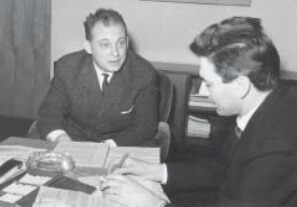
Pero Pirker (on the left) © Croatian Journalist Association / Wikipedia
Both corona and earthquake, as well as the mess suspected to find post-Bandić, are all just another challenge in the history of a town that is used to be challenged and always dancing victory laps.
While Đurašković explained comparisons of what was the most difficult challenge and who was the best mayor make no sense, Goldstein and Klasnić presented their pick. But, as respectable historians they are, they emphasized that it is their opinion and not an empirical fact, even though their arguments are both knowledgable and well explained.
In the end, politics should be about making people's lives better and not about chasing crowns or historical acknowledgments. And as Zagreb really needs a quality leader, the only logical conclusion is: may the best candidate wins, and may purgers recognize the best man or women for Zagreb to once again wave the middle finger to the aftermaths of the recent crisis as it overcomes them.
Learn more about Zagreb on our TC page.
For more about history in Croatia, follow TCN's dedicated page.
Exhibition of Photos About Boka Kotorska Croats to Be Staged in Zagreb
ZAGREB, 9 May 2021 - An exhibition of photos taken by photographer Dražen Zetić about the heritage and culture of the Croats in the Montenegrin Bay of Boka Kotorska will open in the Library of the Croatian Academy of Sciences and Arts (HAZU) in Zagreb on Wednesday, 12 May.
This exhibition called "Fides et honor!" will include also some of the artifacts possessed by the HAZU Academy pertaining to the history and heritage of the Boka Kotorska area, for instance, documents about the Catholic Cathedral of Saint Tryphon dating back to 1166, or a collection of poems written in the Croatian language in Budva in 1640.
As far as the photographs are concerned, author Zetić took them in the period from 2015 to 2020.
The exhibition runs through 31 May.
On Saturday, Croatian Foreign Minister Gordan Grlić Radman visited the Croat community in the Bay of Boka Kotorska and on that occasion pledged support to the preservation of the identity of ethnic Croats in that part of Montenegro.
He also announced some plans for including teaching about this Croat community in the educational curricula in both Croatia and Montenegro and in the training of local tour guides in the bay so as to raise awareness about the heritage of that ethnic community.
For more about lifestyle in Croatia, follow TCN's dedicated page.
Doctors at KBC Zagreb Successfully Perform a Caesarean Section on Respirator-Bound COVID Patient
May 8, 2021 – Doctors at KBC Zagreb were forced to use an unconventional procedure to save two lives when faced with a pregnant COVID patient whose condition was becoming life-threatening.
Doctors in University Hospital Centre Zagreb (KBC Zagreb) managed to perform quite a feat. They did a successful C-Section procedure on a pregnant woman with a bad case of COVID. The patient had to use a respirator to help her breathe. The procedure in question is a brand new technique that is rare in practise.
The University Hospital Centre Zagreb dates back to 1942 and is the country's biggest hospital. It also acts as a teaching hospital for the University of Zagreb's medical programs. KBC Zagreb is one of the country’s most renowned medical institutions with a long tradition of highly skilled medical professionals. So, it doesn’t come as a surprise the team at this institution was the one to do such a complex and risky procedure so successfully.
Urgent Procedure
As reported by index.hr the patient was 32 weeks pregnant. She came to the hospital with a bad case of COVID. The disease compromised her lungs and the doctors decided to put her on a respirator. Seeing how the condition was life-threatening to both the patient and her baby, they eventually decided to do a Caesarean Section. The procedure involved using an unconventional method that was technically very demanding. Circulation was routed through a dialysis machine and special filter in order to reduce the inflammation process and stabilise the patient. At the same time, aided by a team of gynaecologists, the C-Section was successfully performed and the baby was saved.
Both the mother and the child recovered. The hospital released the child already, while the mother is expecting to go home next week. In the end, the exciting story got a happy conclusion. KBC Zagreb doctors once again proved they are deserving of their professional reputation.
Medical professionals in Croatia continue their exhausting fight against the COVID19 epidemic. They urge the population to follow the safety guidelines and help prevent the spread of the disease. It is important to note how KBC Zagreb is working at full capacity. But the recent trend of a slow, but steady drop in the number of new cases is making everyone a bit more optimistic
For more about Covid-19 in Croatia, follow TCN's dedicated page.
Iberia Flights from Madrid to Zagreb, Split, Zadar from June!
May 7, 2021 - The latest flight news to Croatia as Iberia flights from Madrid to Zagreb, Split, and Zadar have been announced for the summer.
Croatian Aviation reports that in the summer of 2020, the Spanish national airline operated to only one destination in Croatia instead of the usual four - Dubrovnik Airport. This summer season, the company intends to operate at all four airports in Croatia, the same as in the summer of 2019.
Namely, Iberia will run regular lines from Madrid to Zagreb, Split, and Zadar. The line to Dubrovnik is already in traffic.
Line to Zagreb
The regular Madrid - Zagreb - Madrid flight has been announced since the beginning of the summer flight schedule (end of March), but flights are continuously canceled due to the epidemiological situation. Iberia currently plans to establish traffic between the two capitals from Friday, June 4.
As of that date, the company currently offers three flights a week between Zagreb Airport and Madrid, every Friday, Saturday, and Sunday with A320 aircraft.
The company intends to increase the number of rotations to Zagreb in July by introducing the fourth flight of the week, every Tuesday. The schedule for July and especially August is still subject to change. The company will certainly analyze the state of booking and the demand on individual flights as we approach the peak of the summer season.
This is a significantly smaller number of flights of this carrier to Zagreb compared to the summer of 2019 when Iberia operated on this route twice a day. Still, given the overall situation, it is certainly positive news that they plan to return this summer to Zagreb airport.
Line to Split Airport
From June 1, Iberia plans to renew the Madrid - Split - Madrid line. Three flights a week have been announced on Tuesdays, Saturdays, and Sundays from the mentioned date.
In the second week of June, a flight is added on Wednesdays, and as of June 21, 6 flights a week have been announced, every day except Thursday. The flight schedule for July differs from the schedule for June, but the company will likely make more operational changes on this route by July.
Line to Zadar Airport
Iberia plans to re-establish the Madrid - Zadar - Madrid route from June 29. This route should be in operation until the end of the summer season twice a week, every Tuesday and Saturday, operated by A320 aircraft.
Line to Dubrovnik Airport
Flights between Madrid and Dubrovnik have been operating regularly since the beginning of the summer flight schedule. The company has recently increased the number of operations on this route, so flights are available on Fridays and Sundays throughout June.
From the beginning to the middle of June, four flights a week have been announced (Fridays, Saturdays, Sundays, and Mondays), and from June 18, the line will operate daily. In July, Iberia plans an even larger number of operations to Dubrovnik, which will primarily depend on well-known factors.
Apart from Iberia, no other airline operates on a direct route between Croatian airports and Madrid. Along with travelers whose final destination is Madrid, Iberia has for many years been one of the first choices of many travelers who continue their journey to South America (destinations such as Bogota, Lima, Santiago, Sao Paulo, Buenos Aires, etc.).
Follow the latest on flights to Croatia HERE and the latest travel updates and COVID-19 news from Croatia HERE.
For more on travel in Croatia, follow TCN's dedicated page.
Friends of Croatia: European Parliament Office in Zagreb - First Contact with Croatian Citizens
May 6, 2021 - The third article in the series "Friends of Croatia: European Parliament Office in Zagreb", explores a small but dedicated office whose central focus is the 12 Croatian members of the European Parliament, as well as informing citizens and educating them about the European Union.
July 1, 2013, was a historic date for Croatian international integration as the country finally joined the European Union. The Union of developed European countries called for an enormous celebration on the main Ban Jelačić square in Zagreb. Many people saw different opportunities, and lots of opportunities were promoted by politicians ahead of joining. But, with almost eight years in the EU, could we actually list specific benefits and determine if Croatia is truly taking part in the „European dream“?
„EU membership made Croatia stronger, and there are many examples of the practical effects of it. I’ll mention two important ones: access to the common market and commitment and implementation of numerous political and economic reforms. Of course, one of the most visible immediate results of the EU membership was the end of customs controls at internal EU borders, which made crossings much smoother, with less hassle for people and goods. The removal of administrative and tariff barriers meant lower costs for businesses which – in combination with access to significant EU funds - translated into concrete economic advantages, helped the recovery, and increased exports. Also worth mentioning - the interest rates on loans have dropped, which lowered the costs of borrowing money for citizens and the business community, and this will be become even more pronounced once the country joins the euro. When it comes to Croatia’s contribution to the EU, along with its heritage, culture, and tradition that enriched the bloc, the country also brought its example and enthusiasm for the EU enlargement to the Western Balkans. Croatia is a vocal advocate of the European perspective for the region and considers the enlargement to be the most effective transformation mechanism that the EU has“, summarized Violeta Simeonova Staničić, the Head of the European Parliament Office in Zagreb, which is dedicated as the first contact between the European Parliament (EP) and citizens in Croatia.

Violeta Simeonova Staničić © European Parliament Office in Zagreb
The Office started its work in February 2013. Simeonova Staničić and three other associates put the whole project in a small space in the backyard of a former EU delegation. Describing the team in 2013 as the „EP Delta Force“, Simeonova Staničić recalled the difficulties of their early engagement. „It was difficult to operate properly and to be visible as the country was not yet a member state, so we were not able to function as an official liaison office. We couldn't even do a proper information campaign for the first EU elections when Croats decided who would be their first official members of the European Parliament“, she said.
While any EU organization is often perceived as big and loaded with people, the EP office in Zagreb counts six staff members. Being a complex organization which can often be misunderstood, their informative service on all thing EU is extremely important.
„People tend to have a lot of misconceptions when it comes to the competencies of the EU. In various policy areas, EU member states still hold primary responsibility. Health policy, for example. Social policies and retirement as well. In others, the EU is in the lead as it is ultimately more beneficial for all countries involved that decisions are made and actions taken with the interests of the entire Union in mind. Unfortunately, too often, we can see that when something good happens, usually national governments are credited for it, and if something is not going well, then Brussels naturally is to blame. But various crises and challenges have shown that the EU is at its finest when working as a team player, one community and a common market“, explained Simeonova Staničić. She added that when solidarity prevails, everyone gains a sentence that can underline the usefulness of international cooperation that is the EU.
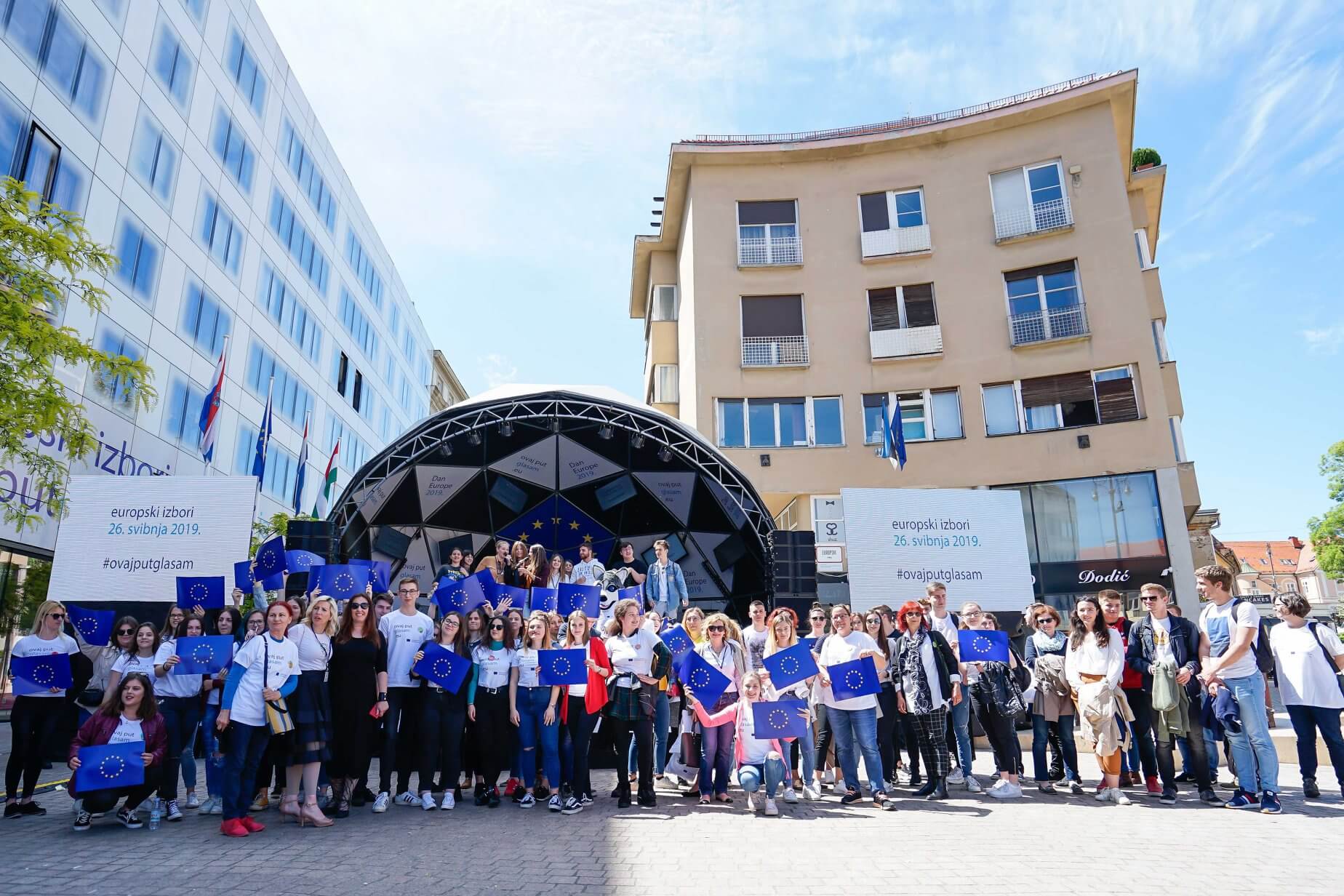
2019 EP elections campaign "This time I vote" © European Parliament Office in Zagreb
The citizens recognize the help the Zagreb EP office can offer, and the Office gets lots of inquiries daily. Over time, the phone calls were more often replaced by e-mails, and first contacts are often made through the Office's social networks. 45,000 followers on Facebook and heavy engagements on Twitter and Instagram, and the quick response of the small staff are certainly admirable.
„We sometimes receive the bulk of documents as many people send us copies of their dealings with various institutions or judicial bodies. These types of problems are, of course, beyond our remit, but we will always try to help people to identify the right authority they need to address and contact in order to resolve their issues. We also get requests from various researchers and scholars who need help with finding certain data and material important for their work, or who need background information on a certain topic“, said Simeonova Staničić, adding the questions they receive are quite diverse.
The central part of the Office’s daily work revolves around 12 Croatian members of the Parliament. “Working with Croatian members of European Parliament is our daily priority and what we center our work around. We organise press conferences and events around issues they work on and committees that they are members of. We cooperate and communicate with them very successfully, as we foster a mutually beneficial relationship with them. As a rule of a thumb, we virtually have no event without a member of European Parliament present“, Simeonova Staničić explains.
The other part of the Office's role includes working with youth, media, and NGOs.
When it comes to the media, the Office informs daily about ongoing debates and discussions concerning the day-to-day activities of the European Parliament. They also strive to put important decisions in context and promote and explain the work of members of the Parliament. Before the coronavirus pandemic, the Office even invited journalists to follow the plenary sessions in Strasbourg to give them the opportunity to familiarise themselves better with the institution and its role in the EU decision-making process. In return, a steady community of journalists following EU affairs is formed in Croatia, and the expansion of reporters is something the Office always welcomes. The accent is put on working with local media, and several outlets managed to get co-finance for their projects by European grants.
Cooperation with NGOs depends on every project and topic of interest, but with the diversity of NGOs, some sort of collaboration with some organisation is always ongoing.
Regarding the youth, two projects stand out. „Our two most successful projects to date are Euroscola and European Parliament Ambassador School Programme (EPAS). Euroscola became so popular among all Croatian schools that whenever we had rounds of regional or national selections, we had over 100 schools competing for very limited quota to go to Strasbourg for a day at the European Parliament. Through Euroscola, we created a fantastic network of incredibly involved, active, hard-working schools all over Croatia. The EPAS program was launched in 2016, and today we have a wide network of over 50 high schools scattered across the country. They cooperate closely with us and follow the work of Croatian MEPs throughout the entire school year“, pointed out Simeonova Staničić.
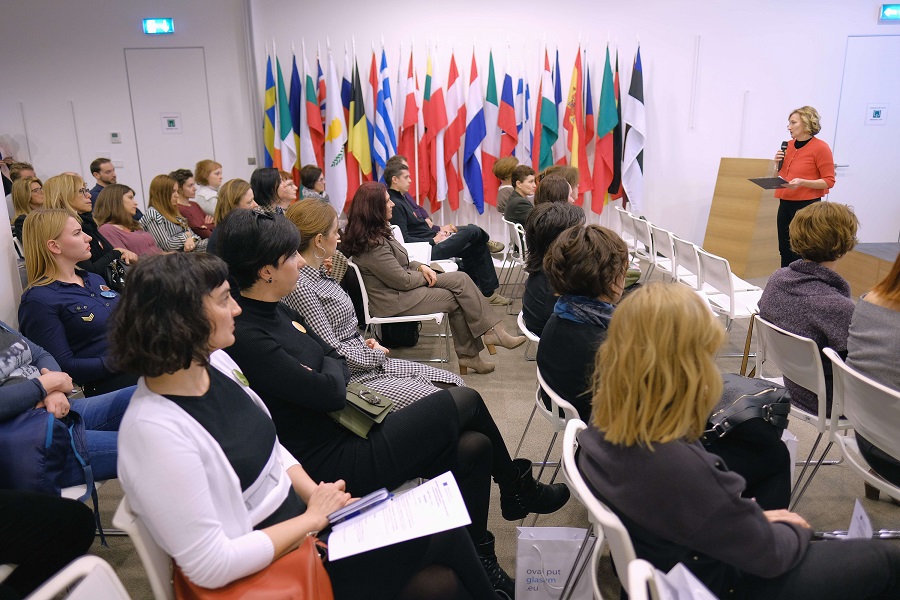
Senior EP Ambassadors © European Parliament Office in Zagreb
Apart from media and citizens, the cooperation with the official bodies of the state is at a high level too.
„We collaborate very well with the Ministry of Foreign Affairs and other government institutions. For example, we cooperate when the delegation of the European Parliament comes to Croatia to work on a certain topic related to the upcoming legislation. This cooperation was particularly pronounced in the run-up to and during the first Croatian presidency of the Council of the European Union“, said Simeonova Staničić.
Particularly good collaboration is also made with the Croatian Parliament, a natural counterpart of the European Parliament. Currently, they are organizing the conference on the future of Europe, but also a more regular public award ceremony for the European Citizens’ Prize (established in 2008 by the EP to award individuals or groups that contributed to empowering European Integration).
„We are also regularly in contact with foreign embassies in Croatia, in pre-Covid times they were not only guests at our events, but also provided interesting speakers from their own countries for our panels and conferences “, described Simeonova Staničić the vast web of cooperation the Office has in Croatia.
Although being an Office for the European Parliament, they also help citizens by giving information on other EU institutions and how to get in touch with them. Informing citizens of ways to actively take part in European democracy, Simeonova Staničić describes as „the core of everything we do as an office of the most democratic institution of the EU“.
„European citizens can petition the European Parliament through our dedicated portal (European's Citizens's Initiative). This is a very transparent process whereby individuals or associations can submit a petition on a subject which comes within the European Union’s fields of activity and which affects them directly “, she explained.
Croatian perception and EU scepticism.
Perhaps it depends on the algorithm or just the loudness of its spokespersons, but it seems Euroscepticism is on the rise in Croatia. Still, Simeonova Staničić's view is much more optimistic and based on the public opinion surveys.
„Actually, the latest Eurobarometer survey shows that 78% of participants in Croatia state that EU membership is beneficial to Croatia, and 74% of those asked believe that COVID-19 economic recovery will be faster thanks to the EU. The majority of the respondents also answered that they have a positive image of the EU“, she said. She continued, however, that almost similar in size is the number of people who have neither negative nor positive opinions.
„For us, these 'non-committal' ones are really important and we try to reach them with our work. We need to raise their awareness about the advantages of the EU; thus, we mainly address young people, who are natural citizens of the EU, who are so accustomed to all the freedoms and opportunities the EU gave them that they take them for granted. They are not aware that there was a time, not so long ago, when these opportunities did not exist“, explained the Head of Office headmistress.
She added that entrepreneurs, managers, and small and medium business owners are most aware of EU benefits, making them natural partners and ambassadors with whom the Office also works really well.
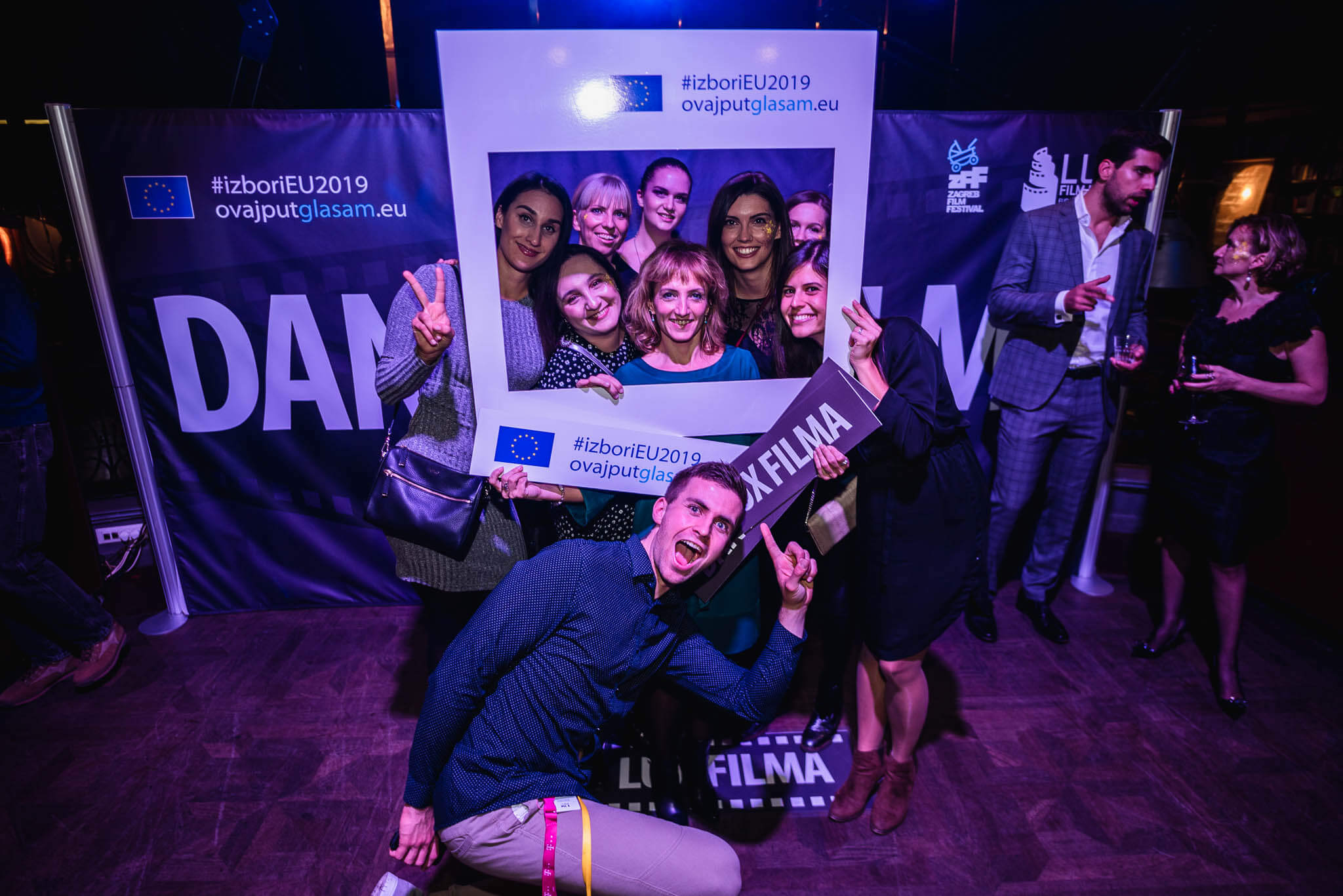
Lux Party on election year © European Parliament Office in Zagreb
In similar rhetoric, Simenonova Staničić dismissed my thesis that young people recognize the easier traveling and working in other member countries as the only benefits of the EU. Firstly pointing out that „freedom of movement, freedom of choice, and the privilege to be employed without administrative barriers in any member state is one of the biggest values and benefits coming from an EU membership“, which means „escaping Croatia is not the right terminology“. Also, just as Croatians are leaving the country, other countries experience the same thing as their citizens are coming to Croatia.
„Due to the pandemic, we are actually witnessing more EU nationals temporarily moving to Croatia, as they work remotely. There is a large community of EU nationals which continues to grow, and it has a lot to thank Croatia’s EU membership“, argued Simeona Staničić.
Indeed, the reputation, and trust in the global community secured by EU membership, certainly contributed to the rise of digital nomads coming to Croatia, on which TCN regularly reports.
The Head of Office once again repeated how most of the benefits in EU Croatians regularly experience and are enjoyed without realizing it is thanks to the EU.
„When there is a new school lab or student housing being built with European funds, or when our young people go off to university or college and take for granted that they would go on an Erasmus exchange; when they don’t have to pay major tuition fees while studying abroad in some other EU member state but are charged the same rate as locals; when, together with other European countries like France, Belgium, and Germany, your government is part of negotiations on major questions of international importance: from health to peace and security...“, she listed various examples.
When asked to comment on Croatia's respect for human rights and European values, a question inspired by last year's cases the Republic of Croatia lost in the European Court of Human rights in Strasbourg, Siemonova Staničić refused to comment and instead explained that the role of the Office in Zagreb (as well as anywhere in Europe for that matter) is not political.
„We are here to provide support to members of the European Parliament in the exercise of their official mandate on the hand and to ensure that people understand actions of the Parliament and to encourage them to engage in the European democratic process on the other. This is important because citizens have tools to influence the legislative agenda of the EU directly “, explained Simeonova Staničić. For the already mentioned European Citizens Initiative, the EP must consider proposals with 1 million verified signatures.
Zagreb office for every EU citizen: Speaking English, Croatian, and six more languages!
As the EU is dedicated to being beneficial for every EU citizen from every country in the organization, so is the EP Office in Zagreb. Simeonova Staničić says the Office serves every EU citizen in Croatia, and whether - in person or online, they will address any issue or interest non-Croatian EU citizens may have and gladly respond and engage.
„In general, we work in the language of our host, which in this case is Croatian. Nevertheless, every European official is obliged to pass the employment exams in one of the working languages of the European Union and within two years to be able to work in 3 languages. In our case, our Office uses predominantly Croatian and English, but I am proud to say that my colleagues are proficient in many languages, and we can serve European citizens also in French, German, Slovenian, Bulgarian, Dutch, and Italian, without hesitation“, assured Simeonova Staničić.
The same service is also offered to Croatians in other EU countries, as every member state has an EP office. And cooperation being the keyword, the offices are frequently in touch as well.
"For example, the Parliament organized an online solidarity event called #EPASwithPetrinja where pupils from three member states (France, Ireland, and Spain) engaged with their counterparts from Petrinja and Zagreb to express solidarity in the wake of the disastrous earthquake that hit parts of Croatia and to comfort children their age from those hard-hit areas. At the event, we had members of the European Parliament from France, Ireland, and Croatia as speakers,“ Simeonova Staničić gave one example, adding that the cooperation is also there whenever there is a common topic or members of the European Parliament from different delegations work on major legislative or policy issues of interest to European citizens across the Union.

EPAS with Petrinja © European Parliament Office in Zagreb
The EP offices are always located in the capital city, and several countries also have the so-called „Antenna offices“ located in other larger cities such as Germany (Munich), France (Marseille), Poland (Wroclaw), Spain (Barcelona), and Italy (Milan).
„We do not have offices around the country. However, both our Office and the Representation of the European Commission in Croatia use the network of the so-called Europe Direct Information Centres. There are 10 of them in Croatia currently, and they are located in Petrinja, Slavonski Brod, Čakovec, Šibenik, Zadar, Osijek, Virovitica, Split, Pula, and Karlovac. They are not under our authority - we do not control them, and they are not a part of our structure. But they are our natural partners in various activities and often serve as local contact points“, explained Simeonova Staničić.
To conclude, the European Parliament Office in Zagreb is open to assist anyone that wants to receive any information related to the European Parliament - be it regarding its debates, ongoing plenaries, committee meetings, work of the members of the European Parliament, or general information concerning other European institutions.
The address of the Office is Augusta Cesarca 4 in the House of Europe on European Square in Zagreb, which is open from 9 am to 5 pm (however, due to the pandemic, the office is closed to the public until further notice). At that same time, you can reach them on the general E-mail This email address is being protected from spambots. You need JavaScript enabled to view it. or on the following phone numbers:
For public relations (citizen inquires):
Violeta Simeonova Staničić (Office head): + 385 1 4880 280 (E-mail: This email address is being protected from spambots. You need JavaScript enabled to view it.)
Janja Mateja Aleš (assistant): +385 1 4880 269 (This email address is being protected from spambots. You need JavaScript enabled to view it.)
Andrea Čović Vidović: +385 1 4880 273 or +385 91 510 6830 (E-mail: This email address is being protected from spambots. You need JavaScript enabled to view it.)
Marko Boko: +385 1 4880 274 (E-mail: This email address is being protected from spambots. You need JavaScript enabled to view it.)
For media relations:
Maja Ljubić Kutnjak: +385 1 4880 272 or + 385 99 490 4715 (This email address is being protected from spambots. You need JavaScript enabled to view it.)
Barbara Peranić: +385 1 4880 272 or + 385 99 271 3026 (This email address is being protected from spambots. You need JavaScript enabled to view it.)
You can also follow the Office on Facebook, Twitter, Instagram, Youtube, and Flickr.
For any changes with the address, contacts, etc., check their official website.
To read more from the series "Friends of Croatia", follow TCN's dedicated page.
For more about European Union in Croatia, follow TCN's dedicated page


